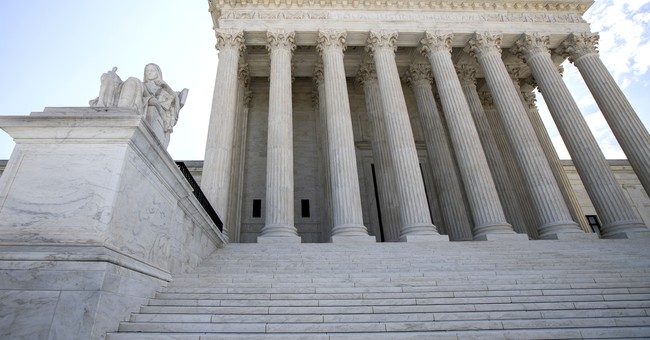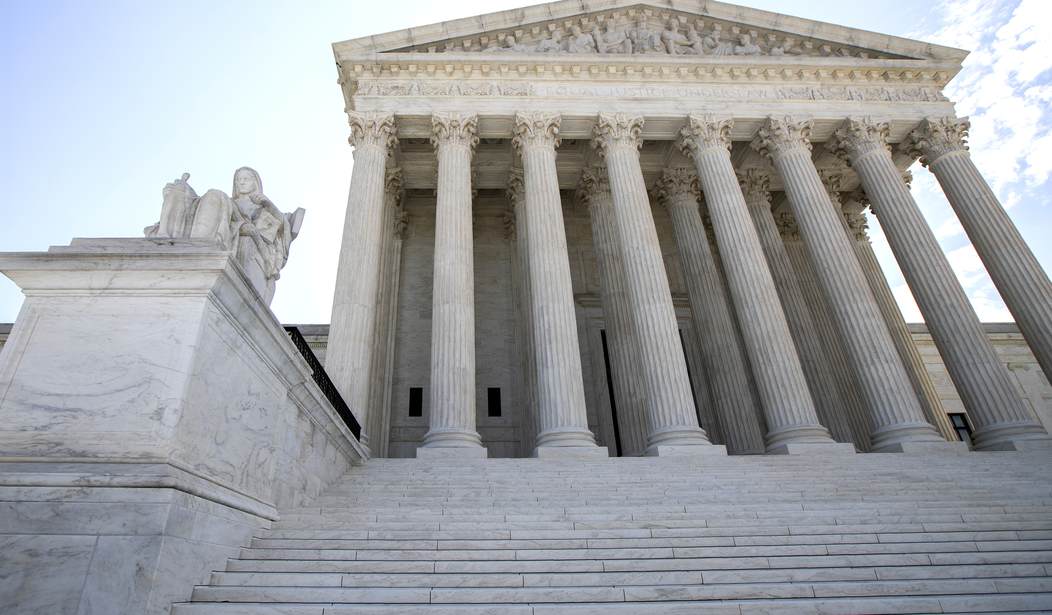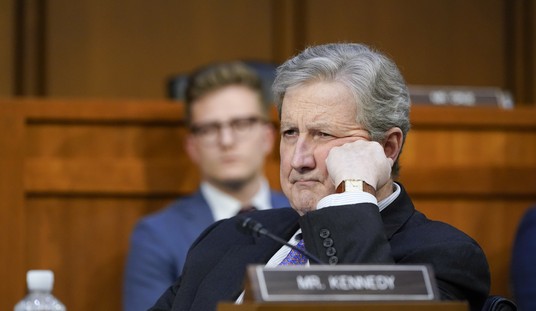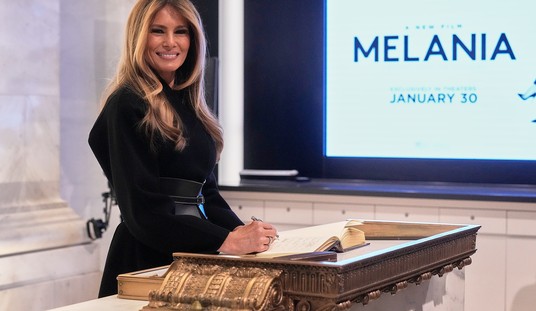
On Friday, I wrote this story about a federal court judge in Ohio — appointed by Pres. Obama — issuing a Preliminary Injunction blocking an Order from the Ohio Secretary of State who said County Election Boards could have only a single “dropbox” collection location for Ohio voters to deliver their absentee ballots in person rather than mail them.
The Cuyahoga County Board of Elections developed a plan to establish “drop boxes” at locations around the County — Cleveland is located in Cuyahoga County. The Ohio Secretary of State, a Republican, issued a directive stating that “off-site” and unattended drop-boxes were not allowed under Ohio law, and the County’s plan was not approved for collection of ballots. This led to the initial lawsuit brought by Democrat party interests.
The federal lawsuit claimed that the requirement under the Secretary of State’s ruling meant that the only location where voters could drop off absentee ballots was the County Election Board’s Office in downtown Cleveland. Because of the travel difficulties that some would encounter in getting to the Election Board’s Office, the plaintiffs claimed their right to vote was infringed upon by the Secretary of State’s order banning off-site drop boxes in locations around the County.
The Ohio Secretary of State initially stated that a “dropbox” ballot collection site could be established as long as it was staffed appropriately, and the collection of ballots was done consistent with Ohio law. But in response to the plan published by the Cuyahoga County Board, he clarified his earlier decision by stating that while off-site locations staffed by County Election workers would be allowed, the locations would still need to be in close proximity to the County Board’s offices.
In response to this clarification, the federal judge granted the preliminary injunction sought by the plaintiffs authorizing Cuyahoga County to use off-site ballot collection locations a substantial distance from the County Election Board Offices.
It took the Sixth Circuit Court of Appeals less than 24 hours after the Ohio Secretary of State sought an emergency stay of the District Judge’s order to grant that stay, dissolve the injunction, and return control of the “dropbox” issue to the individual responsible for overseeing the election process in the State of Ohio — the Secretary of State.
The Supreme Court has repeatedly emphasized that lower federal courts should ordinarily not alter election rules on the eve of an election. Republican Nat’l Comm. v. Democratic Nat’l Comm., 140 S. Ct. 1205, 1207 (2020) (per curiam). Here, the district court went a step further and altered election rules during an election. The district court enjoined Ohio Secretary of State Frank LaRose from enforcing his directive that absentee ballot drop boxes be placed only at the offices of the county boards of elections. Secretary LaRose appealed to this Court, and now moves for an administrative stay and a stay of the district court’s injunction pending appeal…. we grant the motion for a stay pending appeal….
Here, Directive 2020-16 prohibits county boards of elections from “installing a drop box at any other location other than the board of elections.” Notably, Ohio voters are not required to use a ballot drop box to vote. And we have acknowledged that “Ohio is generous when it comes to absentee voting,” even though “there is no constitutional right to an absentee ballot.”… Voters may (1) vote in person on election day, (2) vote in-person for more than four weeks before election day, (3) mail in an absentee ballot; or (4) drop off an absentee ballot at a drop box. Thus, a limitation on drop boxes poses at most an inconvenience to a subset of voters (those who choose to vote absentee and physically drop-off their absentee ballot). It surely does not impose a “severe restriction[] on the right to vote”…. Moreover, the State cannot be faulted for these voters’ choice to not take advantage of the other avenues available to them to cast their ballot.
The Appeals Court concluded:
Federal courts are not “overseers and micromanagers” of “the minutiae of state election processes.” Ohio Democratic Party v. Husted, 834 F.3d 620, 622 (6th Cir. 2016). The district court in this case altered election rules during an election and in disregard for Ohio’s important state interests.
This was a 2-1 decision, with Circuit Judge White dissenting. She wrote:
Although federal courts are instructed, in ordinary cases, to refrain from altering election rules close in time to an election, this is not an ordinary case. Here, unlike the cases in which such rules were announced… Plaintiffs are not challenging the application of a statute drafted and debated by a legislature, or an election rule determined by referendum. Nor are they challenging the application of a rule that has long applied to elections in Ohio. Instead, Plaintiffs ask the federal courts to determine the constitutionality of an eleventh-hour directive issued unilaterally by a single elected official to disrupt the established plans of bipartisan county boards of elections endeavoring to perform their duty to administer a fair and orderly election in their jurisdictions. The Secretary of State claims that he is seeking a stay in order to “preserve the status quo.” But it was the Secretary’s last-minute directive that disrupted the status quo by banning county boards of elections from exercising their discretion regarding the location and number of ballot drop boxes needed to facilitate orderly administration of the November election. The district court’s order merely returns the administration of Ohio’s elections to the status quo, enacted by the legislature, that existed prior to the Secretary’s last-minute (and very recent) order, until the constitutionality of the Secretary’s order can be adjudicated on the merits.
In sum, I would not find that the district court, after conducting evidentiary hearings with multiple witnesses, and analyzing significant briefing, abused its discretion in enjoining what it determined to likely be an unconstitutional directive issued by a single elected official, impacting the voting rights of thousands of citizens. Although last minute injunctions issued during an election are usually disfavored, the justifications for such a rule are not present in this case. The status quo, created by the legislature, will be preserved by the district court’s injunction.
All three judges on the panel were appointed by GOP Presidents — two by President Bush (43), and one by President Trump.
BUT, Judge White has a very interesting backstory to her nomination and confirmation.
She was originally nominated to the position on the Sixth Circuit by Pres. Clinton in Jan. 1997, at the beginning of his second term. GOP Senator Spencer Abraham of Michigan blocked the nomination — White was from Detroit — over a dispute between Abraham and the White House involving an agreement reached for submitting nominees from Michigan. Abraham claimed the White House violated with Judge White’s nomination.
Why would the White House do such a thing? Well, Bill Clinton has just been re-elected to his second term, and Judge White was married to Michigan Supreme Court Justice Charles Levin — who happened to be the cousin of Michigan Democrat Senator Carl Levin. Carl Levin wanted her nominated, and he didn’t care about any deal between Sen. Abraham and the Clinton White House, so she was nominated. Sen. Abraham kept her nomination bottled up in the Judiciary Committee in the GOP controlled Senate for the entire 4 years of the Clinton second term, and the White House never withdrew the nomination.
When Pres. Bush 41 took office in January 2001; he put forth two nominations for the Sixth Circuit. Sen. Abraham had lost his re-election bid to Debbie Stabenow in 2000 and was gone from the Senate. Stabenow and Levin worked to block all of Bush’s nominees from Michigan, citing the fact that White and Lewis had never received up-or-down votes during Clinton’s presidency.
After the Democrats regained control of the Senate in November 2006, Levin and Stabenow once again balked at confirming any further Bush nominees from Michigan to the Sixth Circuit. On April 15, 2008, as part of a deal with Levin and Stabenow, Bush renominated White to the Sixth Circuit, more than eleven years after Clinton nominated her.
She was voted out of committee on June 12, 2008, by an 11-8 margin. All of the Republicans on the committee, except Orrin Hatch, voted against her. On June 24, 2008, she was confirmed by the full Senate by a 63-32 vote. She received her commission on August 8, 2008.
As an aside, just for “shifts and giggles,” when she was nominated in 1996, her husband, Justice Levin, was 70 years old. Judge White was 42.
She graduated from law school in 1978. She clerked for Justice Levin for two years. When she started clerking for him in 1978, she was 24, and he was 52 — 28 years her senior.
The heart wants what the heart wants.















Join the conversation as a VIP Member